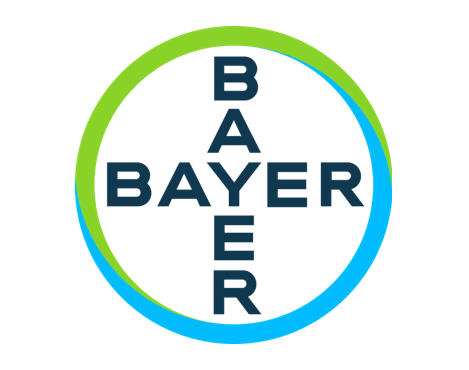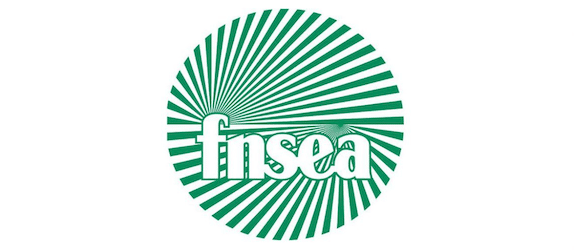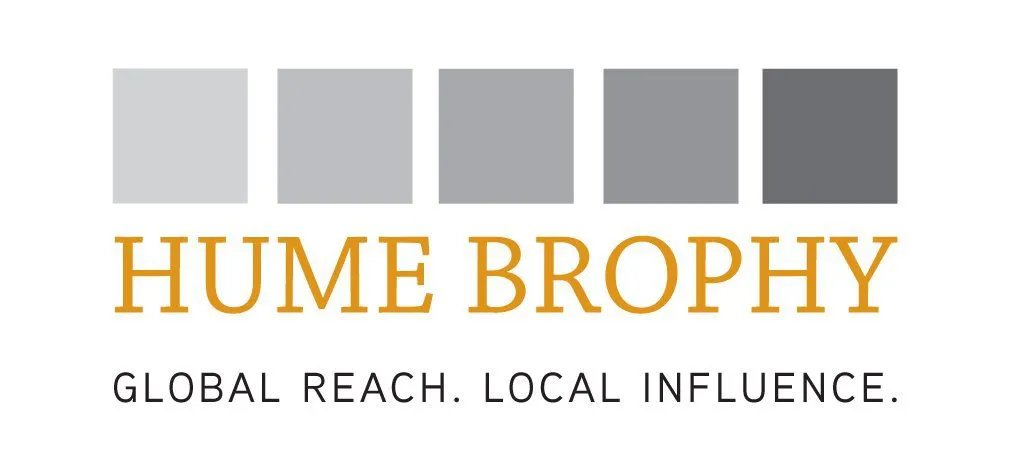Background
The Glyphosate Renewal Group (GRG) is a group of companies working together for the re-approval of glyphosate, an agricultural herbicide, in the EU. At the end of 2019, the group changed its name from Glyphosate Task Force 2 to “avoid confusion with previous glyphosate submissions.”1“FAQs,” Glyphosate Renewal Group. Archived October 28, 2021. Archive URL: https://archive.ph/4pdP6
According to its website, the GRG’s mission is to “seek the renewal of the EU authorization of the active substance glyphosate in 2022 by joining resources and efforts to prepare a single dossier with all the scientific studies and information on the safety of glyphosate.”2“Home,” Glyphosate Renewal Group. Archived August 13, 2021. Archive URL: https://archive.ph/nSXRj
Glyphosate was approved for use in the EU until 15 December 2022. The European Union has been considering the case for its renewal since 2019. The final decision on glyphosate’s re-approval has been delayed until mid-2023, after the European Commission received an “unprecedented number of comments” during public consultation on the issue.3Julia Dahm, “EU agencies push back glyphosate assessment to mid-2023”, Euractiv, May 11, 2022. Archived October 25, 2022. Archive URL: https://archive.ph/RrF3A
The process to evaluate glyphosate for renewal began in 2019, which included a safety evaluation by four EU member states — France, Hungary, the Netherlands and Sweden — which together form the Assessment Group on Glyphosate (AGG).4“Glyphosate,” European Commission. Archived October 4, 2021. Archive URL: https://archive.ph/zRFSP
The GRG’s members include Albaugh Europe SARL, Barclay Chemicals Manufacturing Ltd., Bayer Agriculture, Ciech Sarzyna S.A., Industrias Afrasa S.A., Nufarm GMBH & Co.KG (part owned by Sumitomo Corporation), Sinon Corporation and Syngenta Crop Protection AG. The group’s website formerly invited additional companies to join if they are supportive of the renewal of glyphosate, but this has since been removed.5“Imprint,” Glyphosate Renewal Group. Archived October 30, 2021. Archive URL: https://archive.ph/ryTUv
Bayer is described at the ‘lead member’ of the group “and consequently handles the contact with authorities.”6“Minutes of the pre-presubmission meeting AGG-GTF2 on the renewal of Glyphosate”, European Commission Food Safety, July 4, 2019. Archived September 6, 2022. Archive URL: https://archive.ph/GAGi8
The GRG is the successor organization of the Glyphosate Task Force (GTF), a consortium of companies founded in 2015 whose members included many of the current members of the GRG, including Barclay Chemicals (Manufacturing) Ltd., Dow AgroSciences LLC. (now Corteva Agriscience), Industrias Afrasa S.A., Monsanto Europe S.A./N.V. (now Bayer Agriculture), Nufarm GmbH & Co KG (part of Sumitomo Corporation), Ascenza (formerly Sapec Agro S.A.), Syngenta Limited and UPL.7“Glyphosate Task Force: NGO Activists Ignore One of the Largest and Most Thorough Evaluations of an Active Substance Conducted to Date, in an Attempt to Politicise a Scientific Process.,” BusinessWire, March 7, 2016. Archived November 17, 2021. Archive URL: https://archive.ph/jbQlR
The GRG is based in the offices of PR company Hume Brophy, and said to be ‘run’ by the firm.8“Terms and Conditions,” Glyphosate Renewal Group. Archived August 31, 2022. Archive URL: https://archive.ph/RuEkX 9“Agrifood Atlas – Facts and figures about the corporations that control what we eat 2017,” Heinrich Böll Foundation, Rosa Luxemburg Foundation, and Friends of the Earth Europe, 2017. Archived August 31, 2022. Archived .pdf on file at DeSmog. Its lobbying is conducted by Hume Brophy.10“Glyphosate Renewal Group,” European Commission Transparency Register, March 18, 2022. Archived October 25, 2022. Archive URL: https://archive.ph/al33H
Stance on Climate Change
The Glyphosate Renewal Group’s website states that “agriculture has a unique position [as a climate change solution] with its capability to remove just as many greenhouse gases as it emits.”11“Carbon Emission,” Glyphosate Renewal Group. Archived March 7, 2021. Archive URL: https://archive.ph/faPpr
On its “Carbon Emission” webpage, the GRG writes that there is a “consensus among scientists that ever-increasing carbon dioxide emission is the primary source for climate change” and that “we all contribute to climate change.” It also notes that agricultural practices including tilling, fertilizers and fuel use release greenhouse gases, but argues that glyphosate “enables farmers to continue their cultivations without the need to till or plough,” allowing soil to retain more water, reducing runoff and the need for irrigation.12“Carbon Emission,” Glyphosate Renewal Group. Archived March 7, 2021. Archive URL: https://archive.ph/faPpr
On its website page on “Environment & Biodiversity,” the GRG states that its members are “committed to protect and enhance biodiversity by providing safe crop protection products,” and that its members promote “the uptake of good agricultural practices such as crop rotation and diversification as well as reduced tillage systems.”13“Environment & Biodiversity,” Glyphosate Renewal Group. Archived October 30, 2021. Archive URL: https://archive.ph/xZU0g
On a separate webpage titled, “Why are herbicides essential for modern agriculture?” the GRG writes that herbicides containing glyphosate “enable no-till and reduced tillage farming practices which in turn lead to less soil erosion and a reduction in carbon emissions,” and claims that “in 2014 alone, the carbon emission reduction [of using herbicides] was equivalent to removing nearly 2 million cars from the road.”14“Why are herbicides essential for modern agriculture?” Glyphosate Renewal Group. Archived June 29, 2020. Archive URL: https://archive.ph/wM0IQ
The negative impacts of climate change on agricultural productivity have been widely recognized. One landmark study published in the scientific journal Nature in 2015 tested 30 different wheat crop models at varying temperatures. Its findings suggested that “warming is already slowing yield gains at a majority of wheat-growing locations,” and that “global wheat production is estimated to fall by 6 [percent] for each °C of further temperature increase and become more variable over space and time.”15Asseng, S., Ewert, F., Martre, P. et al. “Rising temperatures reduce global wheat production,” Nature Climate Change 5, 143–147, 2015. https://doi.org/10.1038/nclimate2470
Some studies also suggest that high temperatures and elevated CO2 levels could make glyphosate less effective on weeds, with one study finding reduced effectiveness of glyphosate on both horseweed and white goosefoot. This has led researchers to believe that in a warmer climate with more atmospheric CO2, more glyphosate would have to be used to achieve the desired herbicidal effects.16Matzrafi, M., Brunharo, C., Tehranchian, P. et al. “Increased temperatures and elevated CO2 levels reduce the sensitivity of Conyza canadensis and Chenopodium album to glyphosate,” Sci Rep 9, 2228 (2019). https://doi.org/10.1038/s41598-019-38729-x
As the GTF was pushing for the renewal of glyphosate in 2016, Corporate Europe Observatory (CEO), a nonprofit group that researches and tracks lobbying in the European Union, raised questions about the transparency of the lobbying conducted by the GTF because it was not yet registered to the EU Transparency Register.17“Glyphosate Task Force: NGO Activists Ignore One of the Largest and Most Thorough Evaluations of an Active Substance Conducted to Date, in an Attempt to Politicise a Scientific Process.,” BusinessWire, March 7, 2016. Archived November 17, 2021. Archive URL: https://archive.ph/jbQlR 18“Unregistered activity,” Corporate Europe Observatory. Archived November 17, 2021. Archived .pdf on file at DeSmog.
Pesticide Controversy
Glyphosate is a chemical herbicide widely used by farmers to kill weeds in their fields, with the goals of avoiding significant crop and economic losses. Environmental journalist Robert Hodgson has written that glyphosate is “central to a monoculture model of extensive arable farming.”19Robert Hodgson. “Chemicals lobby makes case for glyphosate licence renewal,” ENDS Europe, June 12, 2020. Archived January 21, 2022. Archive URL: https://archive.ph/FDUov PDF: https://www.pan-europe.info/sites/pan-europe.info/files/public/resources/other/ENDSEurope%2012062020.pdf
Intensive farming practices, including the excessive use of agricultural chemicals like glyphosate, have been found to be dangerous for honeybees and other pollinators. These animals are the cornerstone of food systems and plant reproduction around the world, as they pollinate around two-thirds of global crop plants.20“Declining bee populations pose threat to global food security and nutrition,” Food and Agriculture Organization of the United Nations, May 20, 2019. Archived October 17, 2021. Archive URL: https://archive.ph/0uxsX
Regarding the excessive use of pesticides in agriculture, the campaign group Pesticide Action Network Europe reported that the United Nations Report of the Special Rapporteur on the right to food has stated:
“Pesticides can persist in the environment for decades and pose a global threat to the entire ecological system upon which food production depends. Excessive use and misuse of pesticides result in contamination of surrounding soil and water sources, causing loss of biodiversity, destroying beneficial insect populations that act as natural enemies of pests and reducing the nutritional value of food.”21“Pesticides and the loss of biodiversity,” Pesticide Action Network Europe. Archived November 4, 2021. Archive URL: https://archive.ph/kNBBC
The EU’s published guidance about healthy soils also describes how the intensification of pesticide use in agricultural production can negatively impact soil health, leading to erosion, degradation, desertification and the loss of biodiversity.22“Healthy soil,” European Commission. Archived September 8, 2021. Archive URL: https://archive.ph/vlGCr
According to Friends of the Earth Europe, use of glyphosate and other herbicides can negatively affect biodiversity in agricultural areas, because these substances kill common weeds that can be important food sources for wild insect, bird and other animal species.23“The environmental impacts of glyphosate,” Friends of the Earth Europe, June 2013. Archived June 10, 2021. Archived .pdf on file at DeSmog.
Because glyphosate is applied to crops as a spray, its herbicidal impacts can spread beyond the crop fields and weeds it is designed to target and affect surrounding soils, plants, wild animal species and microorganisms.24“The environmental impacts of glyphosate,” Friends of the Earth Europe, June 2013. Archived June 10, 2021. Archived .pdf on file at DeSmog. 25Lindsey Konkel. “What’s the world’s most widely used herbicide doing to tiny critters?,” Environmental Health News, March 18, 2019. Archived November 23, 2021. Archive URL: https://archive.ph/GTQ7R
Some studies have also linked glyphosate to changes in the metabolism, growth, behavior and reproduction of certain fishes, mollusks and insects.26Lindsey Konkel. “What’s the world’s most widely used herbicide doing to tiny critters?,” Environmental Health News, March 18, 2019. Archived November 23, 2021. Archive URL: https://archive.ph/GTQ7R In 2020, The U.S. Environmental Protection Agency (EPA) published a draft evaluation which found that 93 percent of endangered species and 96 percent of their habitats are likely to be harmed by glyphosate.27Sam Bloch. “New EPA finding: Glyphosate harms 93 percent of endangered species,” The Counter, February 12, 2020. Archived October 25, 2022. Archive URL: https://archive.ph/r14ub
The SAICM, an initiative of the UN Environment Programme, has noted that “use of herbicides to control weeds indirectly affects pollinators by reducing the abundance and diversity of flowering plants providing pollen and nectar.”28“Pollinators and Pesticides: Keeping Our Bees Safe,” Strategic Approach to International Chemicals Management, UN Environment Programme, 2016. Archived January 17, 2021. Archived .pdf on file at DeSmog.
The UN Food and Agriculture Organization has noted that intensive farming practices and “excessive use of agricultural chemicals” can contribute to a decline in populations of bee species, threatening global food security.29“Declining bee populations pose threat to global food security and nutrition,” Food and Agriculture Organization of the Union Nations, May 20, 2019. Archived November 19, 2021. Archive URL: https://archive.ph/0uxsX
In 2021, GRG member Barclay Chemicals Manufacturing Ltd pled guilty after an investigation found the company had polluted the River Tolka in Dublin, Ireland, by discharging 5,000 times the legal limit of glyphosate into the local groundwater.30“Weed killer company to pay €5,000 to charity over pollution in River Tolka,” The Journal Ireland, July 26, 2021. Archived November 6, 2021. Archive URL: https://archive.ph/YLtr7
In April 2021, the GRG organized a “policy dialogue” event with European media network EURACTIV titled “Farming Talks: Experience from the fields,” featuring two speakers from the European agribusiness and farming industry group COPA-COGECA. During the panel, Karina von Detten, Head of Portfolio Solution EuMEA for Nufarm (one of GRG’s six members) said that “glyphosate has an important role in supporting the competitive use of European farming.”31“Farming Talks: Experience from the fields,” EURACTIV, April 20, 2021. Archived November 23, 2021. Archive URL: https://archive.ph/NPSEj 32“Policy Dialogue – Farming talks: Experiences from the field,” video uploaded to YouTube by user EURACTIV, April 20, 2021. Archived .mp4 on file at DeSmog.
Von Detten also stated that risk assessments by “many authorities around the globe” have evaluated glyphosate and glyphosate-containing products and “confirmed them being safe to humans and to the environment.”
In a page on its website, multinational agrichemicals company Bayer, part of the GRG and one of the world’s largest producers of pesticides, has written that glyphosate “has a role in preserving the environment and biodiversity” because farmers can “ensure more productive harvests while using less land” when they utilize glyphosate. The webpage continues: “By decreasing the amount of land needed to grow crops, farmers can preserve the important habitat and forage area that honey bees and other insects, birds, frogs and beneficial organisms need to thrive.”33“Glyphosate’s Role in Preserving the Environment and Biodiversity,” Bayer. Archived March 7, 2021. Archive URL: https://archive.ph/0WehM
2022 European Union Renewal Process
The procedure for glyphosate’s 2022 renewal began in December 2019, after member companies of the Glyphosate Renewal Group launched a formal application. France, Hungary, the Netherlands and Sweden comprise the Assessment Group on Glyphosate (AGG) considering the application. This is the first assessment process involving more than one EU member state.34“Application,” The Glyphosate Renewal Group, Archived on 23 November 2021: https://archive.ph/wip/P2DPL
In June 2021, the AGG submitted its assessments to the European Food Safety Authority (EFSA) and the European Chemicals Agency (ECHA), concluding that it did not believe that glyphosate met the requirements for being classed as carcinogenic. It also stated that glyphosate did not qualify as an endocrine disruptor.35“Procedure and outcome of the draft Renewal Assessment Report on glyphosate, June 2021,” Assessment Group on Glyphosate, June 15, 2021. Archived November 4, 2021. Archived .pdf on file at DeSmog.
The GRG reportedly said that the conclusions were in line with other leading agencies worldwide, including the United States Environmental Protection Agency (EPA).36Ephantus Mukundi. “Glyphosate Controversy Continues as New Report Concludes Herbicide Is Not Carcinogenic,” Olive Oil Times, August 24, 2021. Archived August 23, 2021. Archive URL: https://archive.ph/TUbwv
The EFSA and ECHA assessment of glyphosate was launched in September 2021 and lasted 60 days, ending on November 23, 2021. The EFSA has shared that it will peer review the ECHA’s assessment and is expected to finalize its work in the second half of 2022.37“Glyphosate: EFSA and ECHA launch consultations,” European Food Safety Authority, September 23, 2021. Archived November 16, 2021. Archive URL: https://archive.ph/gSN6G 38“Glyphosate: ECHA and EFSA launch consultations,” European Chemicals Agency, September 23, 2021. Archived November 11, 2021. Archive URL: https://archive.ph/TVZNg
In May 2022, however, EFSA and ECHA announced that they had delayed the approval process until July 2023 after they received an “unprecedented number of comments” during their public consultation on the issue.39“Glyphosate: EFSA and ECHA update timelines for assessments”, EFSA, May 10, 2022. Archived August 31, 2022. Archive URL: https://archive.ph/9yn4c
The GRG and its members argue that a ban on glyphosate would have negative environmental repercussions. At a GRG-hosted event in November 2021, a representative of Bayer claimed that a ban on glyphosate would require farmers to use a mix of other pesticides to substitute their product, which may create more harm to the environment than using glyphosate.40Daniela De Lorenzo and Rachel Sherrington. “Mapped: The Network of Powerful Agribusiness Groups Lobbying to Water Down the EU’s Sustainable Farming Targets,” DeSmog, December 9, 2021.
A spokesperson for the GRG told DeSmog that “leading health regulators around the world, including the European Food Safety Authority (EFSA), have repeatedly concluded that glyphosate-based products can be used safely when used in accordance with the label instructions.” The spokesperson added that the use of glyphosate can help reduce emissions from farming by reducing the need for plowing the soil, a technique which can cause the soil to release greenhouse gases.41Daniela De Lorenzo and Rachel Sherrington. “Mapped: The Network of Powerful Agribusiness Groups Lobbying to Water Down the EU’s Sustainable Farming Targets,” DeSmog, December 9, 2021.
In September 2022, Bayer funded an Impact Assessment “of the loss of glyphosate within the EU” by environmental consultancy ADAS. According to the study, it was “supported by the Glyphosate Renewal Group.”
The study found that without glyphosate, EU farmers could experience billions of pounds in yield losses. It concluded: “Yield losses and increased farm level-costs will affect the global competitiveness of EU agriculture, the ability of the EU to be self-sufficient in food, and the trade balance contributions of agricultural commodities that are exported.” However, the study did not consider negative impacts of glyphosate on health or the environment – or any associated economic costs – instead listing its “environmental benefits.”42Sarah Wynn and Elise Webb. “Impact assessment of the loss of glyphosate within the EU: a literature review,” Environmental Sciences Europe, September 2022. Archived October 11, 2022. Archived .pdf on file at DeSmog.
Human Health Impacts
Glyphosate is a key active substance in pesticides (also known as Plant Protection Products (PPPs)), which have been linked to causing cancer by some studies.
Assessments of glyphosate’s links to cancer by environmental and health bodies are mixed: In 2015, the World Health Organization (WHO)’s International Agency for Research on Cancer classified glyphosate as “probably carcinogenic to humans”. The EPA published a draft human health risk assessment in 2017 stating that glyphosate is “not likely” to be carcinogenic to humans. The European Food Safety Authority simply states that glyphosate is “widely used in plant protection products (PPPs)” to “combat weeds that compete with cultivated crops.”43“IARC Monographs Volume 112: evaluation of five organophosphate insecticides and herbicides,” World Health Organization. Archived April 1, 2019. 44“EPA Releases Draft Risk Assessments for Glyphosate,” Environmental Protection Agency. Archived September 19, 2021. Archive.ph URL: https://archive.ph/f1Dlt “Glyphosate,” European Food Safety Authority. Archived August 19, 2021. Archive.ph URL: https://archive.ph/hQqsd
Manufacturers of PPPs containing glyphosate, including Monsanto and Bayer, have been taken to court over the substance in the United States and Europe. In some of these cases, the firms have been forced to provide compensation to individuals who claim exposure to glyphosate caused their cancers.45“Glyphosate,” European Commission. Archived October 4, 2021. Archive.ph URL: https://archive.ph/zRFSP 46Patricia Cohen. “Roundup Maker to Pay $10 Billion to Settle Cancer Suits,” The New York Times, June 24, 2020. Archived November 1, 2021. Archive URL: https://archive.ph/dixLp
Lobbying
According to its entry in the EU’s Transparency Register, the GRG’s main lobbying activities include organizing events for stakeholders, producing briefings and updates related to the renewal of EU approval of glyphosate, and holding meetings with relevant stakeholders and policymakers as part of the regulatory process.47“Glyphosate Renewal Group,” European Transparency Register. Archived November 17, 2021. Archive URL: https://archive.ph/TWbSi
According to the EU Transparency Register, the GRG spent €300,000 – 399,999 on lobbying in the EU in 2021, via PR firm Hume Brophy. The GRG spent €200,000 – €299,999 on lobbying in the EU in 2019, and the same amount in 2020. The organization employs five people said to spend 25 percent of their time on matters that fall under the scope of the register. Among those five, three are employees of an external consultancy. The address given for the external consultancy is that of Hume Brophy.48“Glyphosate Renewal Group,” European Transparency Register. Archived November 17, 2021. Archive URL: https://archive.ph/TWbSi 49“Glyphosate Renewal Group,” European Transparency Register. Archived November 17, 2021. Archive URL: https://archive.ph/TWbSi 50“Glyphosate Renewal Group”, European Commission Transparency Register, March 18, 2022. Archived October 25, 2022. Archive URL: https://archive.ph/al33H
Global communications agency Hume Brophy received between €100,000 and €199,999 in 2020 to work for the GRG, according to EU Transparency Register filings. The GRG states that its address is the same as that of Hume Brophy.51“Hume Brophy,” European Transparency Register. Archived November 23, 2021. Archive URL: https://archive.ph/fjkWT 52“Glyphosate Renewal Group,” European Transparency Register. Archived November 17, 2021. Archive URL: https://archive.ph/TWbSi
Calls for lobbying ban
In 2017, the EU’s Agriculture and Rural Development committee and Environment, Public Health and Food Safety committee held a hearing examining whether Monsanto had “unduly influenced regulatory studies into the safety of glyphosate.”53Arthur Nelson. “Monsanto banned from European parliament,” The Guardian, September 28, 2017. Archived October 25, 2022. Archive URL: https://archive.ph/Rn5Kq The hearing occurred following allegations made by plaintiffs in U.S. courts that the company’s glyphosate-based herbicides had caused them to develop cancer, which forced the company to turn over thousands of internal documents – known as the “Monsanto Papers” – during litigation.54“Monsanto Papers,” U.S. Right to Know. Archived February 19, 2023. Archive URL: https://archive.ph/OMDsh
Monsanto refused to attend the hearing, and in response its lobbyists were banned from entering the European Parliament.55Arthur Nelson. “Monsanto banned from European parliament,” The Guardian, September 28, 2017. Archived October 25, 2022. Archive URL: https://archive.ph/Rn5Kq
NGOs including Friends of the Earth Europe and LobbyWatch wrote to the EU departments calling for the ban to be extended to the Glyphosate Task Force and Hume Brophy. They stated: “We know that Monsanto’s voice extends far further than its declared lobby registration. The transparency register allows us to see that its interests are represented by an array of organisations, from lobby consultancies to trade associations.”56“Sign-up letter asking for a comprehensive, transparent and efficient ban on Monsanto lobbying,” Alter-EU, 2017. Archived October 25, 2022. Archive URL: https://archive.ph/TaGHs
The GRG’s website states: “The Glyphosate Renewal Group is committed to comply and contribute to all relevant aspects of the EU procedure to re-assess and re-approve glyphosate in the EU. The GRG will do so in a factual, scientific and transparent way.” The GRG has published its scientific dossier, meetings and correspondence with EU authorities on its website.57“Authority Communication,” Glyphosate Renewal Group. Archived October 25, 2022. Archive URL: https://archive.ph/MwKwC
Affiliations
Three members of the European Crop Care Association (ECCA) belong to the Glyphosate Renewal Group: Industrias Afrasa S.A., Barclay Chemicals Manufacturing Ltd and CIECH Sarzyna S.A. ECCA is an association of small- and medium-sized European manufacturers of “plant protection products” including pesticides and herbicides, fungicides, and growth regulators.58“Members,” European Crop Care Association. Archived April 10, 2021. Archive URL: https://archive.ph/Ombhf
Hume Brophy, the public relations firm that “runs” and lobbies on behalf of the Glyphosate Renewal Group, also represents the American Seed Trade Association, Bayer, Euroseeds, Animal Health Europe, the U.S. Sustainability Alliance, and others.59“Hume Brophy,” European Commission Transparency Register, June 10, 2022. Archived October 25, 2022. Archive URL: https://archive.ph/myVzO
Resources
- 1
- 2
- 3Julia Dahm, “EU agencies push back glyphosate assessment to mid-2023”, Euractiv, May 11, 2022. Archived October 25, 2022. Archive URL: https://archive.ph/RrF3A
- 4
- 5“Imprint,” Glyphosate Renewal Group. Archived October 30, 2021. Archive URL: https://archive.ph/ryTUv
- 6“Minutes of the pre-presubmission meeting AGG-GTF2 on the renewal of Glyphosate”, European Commission Food Safety, July 4, 2019. Archived September 6, 2022. Archive URL: https://archive.ph/GAGi8
- 7
- 8“Terms and Conditions,” Glyphosate Renewal Group. Archived August 31, 2022. Archive URL: https://archive.ph/RuEkX
- 9“Agrifood Atlas – Facts and figures about the corporations that control what we eat 2017,” Heinrich Böll Foundation, Rosa Luxemburg Foundation, and Friends of the Earth Europe, 2017. Archived August 31, 2022. Archived .pdf on file at DeSmog.
- 10“Glyphosate Renewal Group,” European Commission Transparency Register, March 18, 2022. Archived October 25, 2022. Archive URL: https://archive.ph/al33H
- 11“Carbon Emission,” Glyphosate Renewal Group. Archived March 7, 2021. Archive URL: https://archive.ph/faPpr
- 12“Carbon Emission,” Glyphosate Renewal Group. Archived March 7, 2021. Archive URL: https://archive.ph/faPpr
- 13“Environment & Biodiversity,” Glyphosate Renewal Group. Archived October 30, 2021. Archive URL: https://archive.ph/xZU0g
- 14“Why are herbicides essential for modern agriculture?” Glyphosate Renewal Group. Archived June 29, 2020. Archive URL: https://archive.ph/wM0IQ
- 15Asseng, S., Ewert, F., Martre, P. et al. “Rising temperatures reduce global wheat production,” Nature Climate Change 5, 143–147, 2015. https://doi.org/10.1038/nclimate2470
- 16Matzrafi, M., Brunharo, C., Tehranchian, P. et al. “Increased temperatures and elevated CO2 levels reduce the sensitivity of Conyza canadensis and Chenopodium album to glyphosate,” Sci Rep 9, 2228 (2019). https://doi.org/10.1038/s41598-019-38729-x
- 17
- 18“Unregistered activity,” Corporate Europe Observatory. Archived November 17, 2021. Archived .pdf on file at DeSmog.
- 19Robert Hodgson. “Chemicals lobby makes case for glyphosate licence renewal,” ENDS Europe, June 12, 2020. Archived January 21, 2022. Archive URL: https://archive.ph/FDUov PDF: https://www.pan-europe.info/sites/pan-europe.info/files/public/resources/other/ENDSEurope%2012062020.pdf
- 20“Declining bee populations pose threat to global food security and nutrition,” Food and Agriculture Organization of the United Nations, May 20, 2019. Archived October 17, 2021. Archive URL: https://archive.ph/0uxsX
- 21“Pesticides and the loss of biodiversity,” Pesticide Action Network Europe. Archived November 4, 2021. Archive URL: https://archive.ph/kNBBC
- 22“Healthy soil,” European Commission. Archived September 8, 2021. Archive URL: https://archive.ph/vlGCr
- 23“The environmental impacts of glyphosate,” Friends of the Earth Europe, June 2013. Archived June 10, 2021. Archived .pdf on file at DeSmog.
- 24“The environmental impacts of glyphosate,” Friends of the Earth Europe, June 2013. Archived June 10, 2021. Archived .pdf on file at DeSmog.
- 25Lindsey Konkel. “What’s the world’s most widely used herbicide doing to tiny critters?,” Environmental Health News, March 18, 2019. Archived November 23, 2021. Archive URL: https://archive.ph/GTQ7R
- 26Lindsey Konkel. “What’s the world’s most widely used herbicide doing to tiny critters?,” Environmental Health News, March 18, 2019. Archived November 23, 2021. Archive URL: https://archive.ph/GTQ7R
- 27Sam Bloch. “New EPA finding: Glyphosate harms 93 percent of endangered species,” The Counter, February 12, 2020. Archived October 25, 2022. Archive URL: https://archive.ph/r14ub
- 28“Pollinators and Pesticides: Keeping Our Bees Safe,” Strategic Approach to International Chemicals Management, UN Environment Programme, 2016. Archived January 17, 2021. Archived .pdf on file at DeSmog.
- 29“Declining bee populations pose threat to global food security and nutrition,” Food and Agriculture Organization of the Union Nations, May 20, 2019. Archived November 19, 2021. Archive URL: https://archive.ph/0uxsX
- 30“Weed killer company to pay €5,000 to charity over pollution in River Tolka,” The Journal Ireland, July 26, 2021. Archived November 6, 2021. Archive URL: https://archive.ph/YLtr7
- 31“Farming Talks: Experience from the fields,” EURACTIV, April 20, 2021. Archived November 23, 2021. Archive URL: https://archive.ph/NPSEj
- 32“Policy Dialogue – Farming talks: Experiences from the field,” video uploaded to YouTube by user EURACTIV, April 20, 2021. Archived .mp4 on file at DeSmog.
- 33
- 34“Application,” The Glyphosate Renewal Group, Archived on 23 November 2021: https://archive.ph/wip/P2DPL
- 35“Procedure and outcome of the draft Renewal Assessment Report on glyphosate, June 2021,” Assessment Group on Glyphosate, June 15, 2021. Archived November 4, 2021. Archived .pdf on file at DeSmog.
- 36Ephantus Mukundi. “Glyphosate Controversy Continues as New Report Concludes Herbicide Is Not Carcinogenic,” Olive Oil Times, August 24, 2021. Archived August 23, 2021. Archive URL: https://archive.ph/TUbwv
- 37“Glyphosate: EFSA and ECHA launch consultations,” European Food Safety Authority, September 23, 2021. Archived November 16, 2021. Archive URL: https://archive.ph/gSN6G
- 38“Glyphosate: ECHA and EFSA launch consultations,” European Chemicals Agency, September 23, 2021. Archived November 11, 2021. Archive URL: https://archive.ph/TVZNg
- 39“Glyphosate: EFSA and ECHA update timelines for assessments”, EFSA, May 10, 2022. Archived August 31, 2022. Archive URL: https://archive.ph/9yn4c
- 40Daniela De Lorenzo and Rachel Sherrington. “Mapped: The Network of Powerful Agribusiness Groups Lobbying to Water Down the EU’s Sustainable Farming Targets,” DeSmog, December 9, 2021.
- 41Daniela De Lorenzo and Rachel Sherrington. “Mapped: The Network of Powerful Agribusiness Groups Lobbying to Water Down the EU’s Sustainable Farming Targets,” DeSmog, December 9, 2021.
- 42Sarah Wynn and Elise Webb. “Impact assessment of the loss of glyphosate within the EU: a literature review,” Environmental Sciences Europe, September 2022. Archived October 11, 2022. Archived .pdf on file at DeSmog.
- 43“IARC Monographs Volume 112: evaluation of five organophosphate insecticides and herbicides,” World Health Organization. Archived April 1, 2019.
- 44“EPA Releases Draft Risk Assessments for Glyphosate,” Environmental Protection Agency. Archived September 19, 2021. Archive.ph URL: https://archive.ph/f1Dlt “Glyphosate,” European Food Safety Authority. Archived August 19, 2021. Archive.ph URL: https://archive.ph/hQqsd
- 45“Glyphosate,” European Commission. Archived October 4, 2021. Archive.ph URL: https://archive.ph/zRFSP
- 46Patricia Cohen. “Roundup Maker to Pay $10 Billion to Settle Cancer Suits,” The New York Times, June 24, 2020. Archived November 1, 2021. Archive URL: https://archive.ph/dixLp
- 47“Glyphosate Renewal Group,” European Transparency Register. Archived November 17, 2021. Archive URL: https://archive.ph/TWbSi
- 48“Glyphosate Renewal Group,” European Transparency Register. Archived November 17, 2021. Archive URL: https://archive.ph/TWbSi
- 49“Glyphosate Renewal Group,” European Transparency Register. Archived November 17, 2021. Archive URL: https://archive.ph/TWbSi
- 50“Glyphosate Renewal Group”, European Commission Transparency Register, March 18, 2022. Archived October 25, 2022. Archive URL: https://archive.ph/al33H
- 51“Hume Brophy,” European Transparency Register. Archived November 23, 2021. Archive URL: https://archive.ph/fjkWT
- 52“Glyphosate Renewal Group,” European Transparency Register. Archived November 17, 2021. Archive URL: https://archive.ph/TWbSi
- 53Arthur Nelson. “Monsanto banned from European parliament,” The Guardian, September 28, 2017. Archived October 25, 2022. Archive URL: https://archive.ph/Rn5Kq
- 54“Monsanto Papers,” U.S. Right to Know. Archived February 19, 2023. Archive URL: https://archive.ph/OMDsh
- 55Arthur Nelson. “Monsanto banned from European parliament,” The Guardian, September 28, 2017. Archived October 25, 2022. Archive URL: https://archive.ph/Rn5Kq
- 56
- 57“Authority Communication,” Glyphosate Renewal Group. Archived October 25, 2022. Archive URL: https://archive.ph/MwKwC
- 58“Members,” European Crop Care Association. Archived April 10, 2021. Archive URL: https://archive.ph/Ombhf
- 59“Hume Brophy,” European Commission Transparency Register, June 10, 2022. Archived October 25, 2022. Archive URL: https://archive.ph/myVzO





